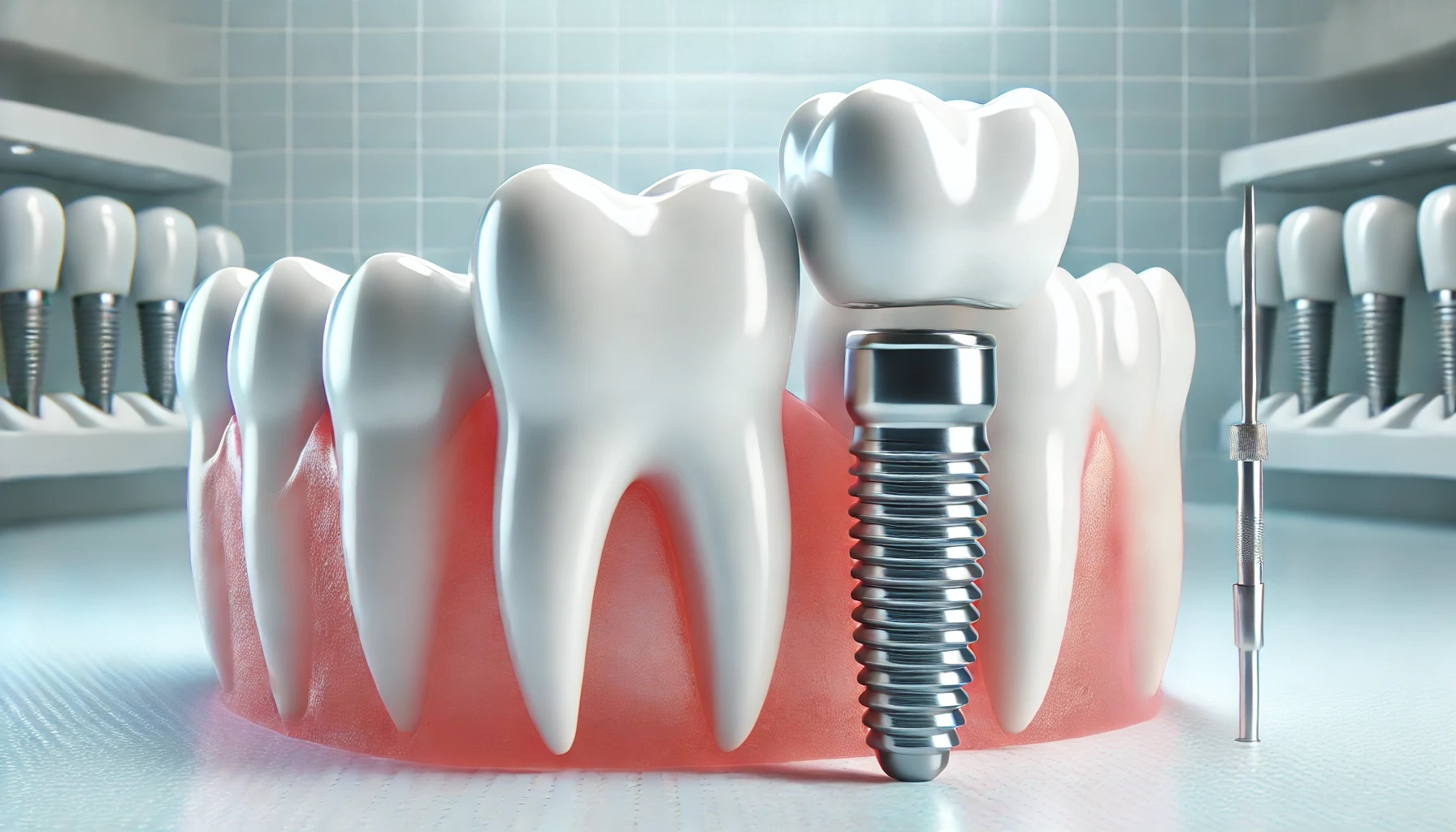
Zirconium dental implants are tooth replacements made from zirconia, a high-strength ceramic. Unlike traditional titanium implants, zirconium implants are metal-free, making them a preferred choice for patients with metal sensitivities or aesthetic concerns. They are biocompatible, meaning they integrate well with the jawbone without causing adverse reactions.
*Reference: Cionca et al., 2016 (This study explains how zirconia implants are biocompatible and suitable for patients with metal sensitivities.)
Why Choose Zirconium Implants Over Titanium?
Zirconium implants offer several advantages compared to titanium. They are white in color, which makes them blend more naturally with the surrounding teeth and gums. This is especially beneficial for front teeth replacements. Additionally, zirconium is resistant to corrosion and does not conduct heat or electricity, which some patients prefer for overall comfort and safety.
*Reference: Oliva et al., 2010 (This research highlights the aesthetic and non-corrosive properties of zirconium compared to titanium implants.)
How Long Do Zirconium Implants Last?
When properly cared for, zirconium implants can last for 10-15 years or more. The longevity of the implants depends on factors such as oral hygiene, regular dental visits, and the patient’s overall health. Studies show that zirconium implants have a success rate comparable to titanium implants.
*Reference: Gahlert et al., 2016 (This paper reviews the long-term success rates of zirconium implants.)
Are Zirconium Implants Safe for People with Allergies?
Yes, zirconium implants are hypoallergenic and are considered a good alternative for patients who are allergic to metals, particularly titanium. Their ceramic composition minimizes the risk of allergic reactions, making them a safer option for sensitive individuals.
*Reference: Sailer et al., 2009 (This article explores the biocompatibility and hypoallergenic nature of zirconium implants.)
What is the Procedure for Getting Zirconium Implants?
The process of getting zirconium implants is similar to that of titanium implants. It begins with a comprehensive consultation, followed by X-rays or CT scans to assess bone density. If there is sufficient bone, the implant is surgically placed into the jawbone. After a healing period of 3-6 months, during which the implant integrates with the bone (osseointegration), the final crown is attached.
*Reference: Scarano et al., 2011 (This study details the steps involved in the zirconium implant placement process and the healing time required.)
Is There a Higher Risk of Implant Failure with Zirconium?
Zirconium implants are just as effective as titanium implants. However, their success depends on correct placement, patient care, and the patient’s overall health. Research suggests that failure rates for zirconium and titanium implants are similar when placed under ideal conditions.
*Reference: Payer et al., 2015 (This research compares the failure rates between zirconium and titanium implants and highlights factors that influence success.)
Are Zirconium Implants More Expensive?
Yes, zirconium implants tend to be more expensive than titanium implants. The cost difference is due to the materials used and the complex manufacturing process of zirconia. However, many patients find the aesthetic and health benefits of zirconium implants to be worth the additional cost.
*Reference: Raptis et al., 2006 (This article examines the cost differences between zirconium and titanium implants, including the reasons for zirconium’s higher price.)
How Do I Maintain Zirconium Implants?
Maintaining zirconium implants is similar to caring for natural teeth. Regular brushing, flossing, and dental checkups are essential. Patients should avoid smoking, as it can increase the risk of implant failure. Additionally, it’s important to avoid using teeth as tools or biting on very hard objects, as this can damage the implant.
*Reference: Kohal et al., 2013 (This paper discusses the importance of oral hygiene and lifestyle choices in ensuring the longevity of zirconium implants.)
Can Anyone Get Zirconium Implants?
Most adults with healthy gums and sufficient jawbone can receive zirconium implants. However, certain conditions such as severe bone loss, uncontrolled diabetes, or heavy smoking may require special consideration or additional treatments, such as bone grafting.
*Reference: Fischer et al., 2008 (This study outlines the eligibility criteria for patients seeking zirconium implants and possible contraindications.)
Are There Any Side Effects or Risks?
Like any surgical procedure, zirconium implants carry some risks. Common side effects may include swelling, discomfort, or minor bleeding post-surgery. Rare complications include infection, nerve damage, or sinus issues, especially for upper jaw implants. However, with proper care, these risks are minimal.
*Reference: Roehling et al., 2019 (This research reviews the potential risks and complications associated with zirconium implant surgeries.)
Conclusion
Zirconium dental implants are an excellent option for patients looking for a durable, aesthetic, and biocompatible tooth replacement solution. With proper care and consultation with a qualified dentist, they can offer a long-lasting and safe solution for missing teeth.
Note: If you have any specific questions or need further information, feel free to reach out to us.

